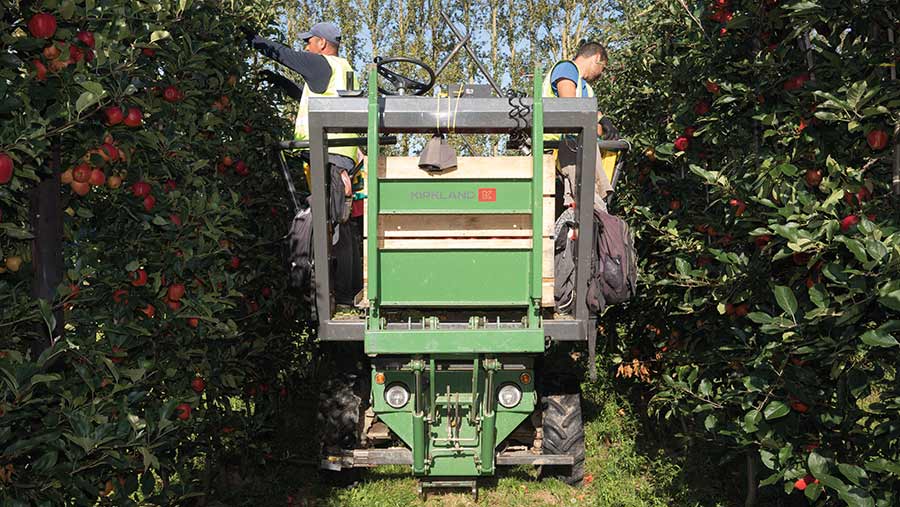Opinion: Giving ex-prisoners a farm job could solve many problems
 © Tim Scrivener
© Tim Scrivener I’ve been in prison. Now, I know what you are thinking. “What! How did he cope? Chokey is no place for a man with his slight build and pretty boy looks.”
OK, maybe I should admit that I was only actually in prison for one afternoon and that I was there as a guest of a reform charity, rather than as a guest of her Majesty the Queen. Basically, I’m resorting to click-bait to lure you into this column…
See also: Farm labour crisis deepens as settlement deadline passes
“So, Matt, tell us about your time inside. Did it change you?”
The answer is yes, it did. Going to a prison has profoundly altered the way I see the world. And that was after just five hours. Goodness knows what would happen if I spent five years in there.
My visit was to North Sea Camp (NSC), an open prison just up the road on the shore of the Wash.
If God built anywhere in the British Isles for the specific purpose of punishing naughty people, then it would be here: the bleak, featureless, windy landscape I call home.
Until recently, NSC was the largest prison farm in the country.
The 100ha of Grade 1 land were reclaimed using sea defences built with the hard labour of the inmates in the 1930s. Historically, the residents worked on the farm to supply other prisons with food.
More recently, as food production and distribution was lost to the madness of centralisation and globalisation, the horticultural activities were deemed unviable and were scaled back to grazing and rearing rare breeds such as Lincoln Longwool sheep and Middle White pigs.
They have their own butchery and bake their own bread. I won’t go so far as to say their sausage baps are worth the price of admission, but they are very good, nonetheless.
I was there with the Oswin Project, a charity that aims to stop prisoners from reoffending. Founded and run by Fiona Sample and Caroline Chrisp, two stalwarts of rural society in Northumberland, it does extraordinary work.
They got in touch with me, through farming connections, to see if there was a way of linking prisoners to farming jobs to put them to work and unlock their talents.
It is well documented that there is a shortage of good workers in this area since we exited the EU. The thought of an untapped labour source of 400 men was the bit that initially got my interest.
After visiting, I realised that the social benefits of creating work for offenders are even greater than the commercial ones.
Fewer than 20% of ex-offenders find a job in their first year after release, and half of the under-25s currently in prison grew up in care.
These numbers suggest to me that we are incarcerating a lot of people because society is failing to offer them a meaningful role or a purpose.
Hearing the prisoners, often men from tough urban backgrounds, talk about how they have discovered a love of lambing season was deeply moving.
The sense of being rooted in nature and having something to care for had played a major part in their rehabilitation.
I came away frustrated that modern society is just as wasteful with human capital as it is with natural capital, but I’m hopeful there is a better way of doing things.

